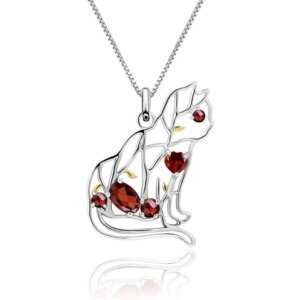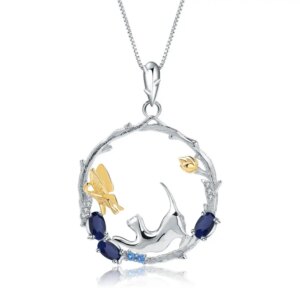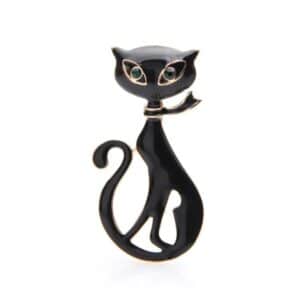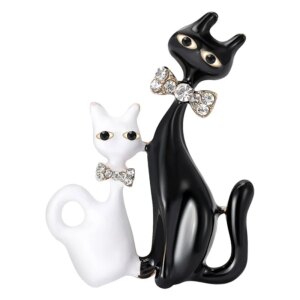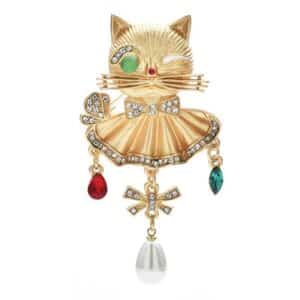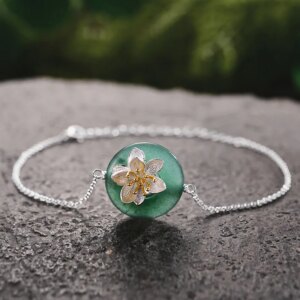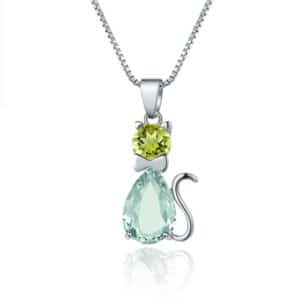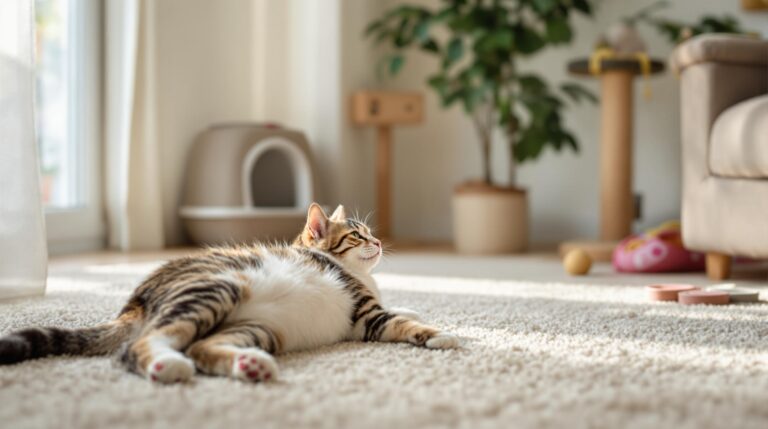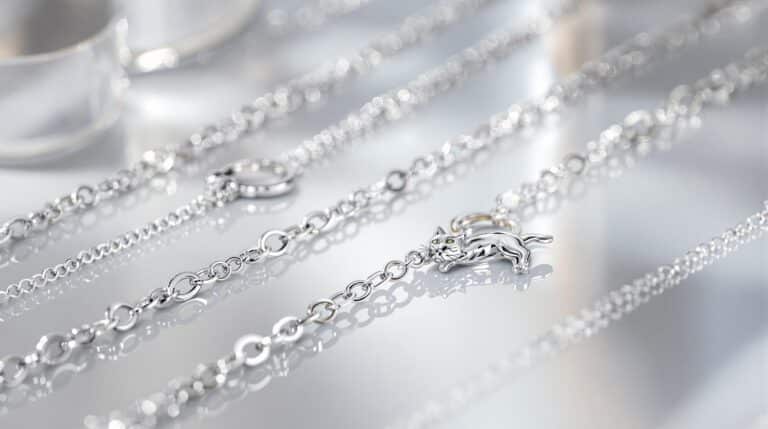Cats eyes dilated can be a fascinating and sometimes concerning phenomenon. This article delves into the reasons behind dilated pupils in cats, from natural instincts to emotional states. Discover how to interpret your cat’s eye behavior and what it means for their health and well-being. By the end, you’ll have a deeper understanding of your feline friend and be better equipped to care for them.
Why Do Cats Eyes Dilate
Natural Instincts and Survival
We at Cat Karma Creations understand that cats eyes dilated is a natural response that has evolved over time to help them survive in the wild. In low light conditions, dilated pupils allow more light to enter the eye, improving their night vision. This adaptation is crucial for hunting and avoiding predators, as it enables cats to see clearly in dim environments. The ability to dilate their pupils quickly also helps them react to sudden changes in their surroundings, such as the approach of a predator or the movement of prey. If you have any questions or need assistance, feel free to contact us at info@catkarmacreations.com.
Adaptation to Light Conditions
The anatomy of a cat’s eye plays a significant role in their ability to dilate their pupils. The iris, which controls the size of the pupil, can rapidly expand or contract to adjust the amount of light entering the eye. In bright light, the pupils constrict to protect the sensitive retina from damage. Conversely, in low light, the pupils dilate to capture as much light as possible. This adaptation is particularly useful for cats, who are crepuscular animals, meaning they are most active during twilight hours. For more information, visit our All Jewelry page to explore our unique cat-themed jewelry.
Emotional Responses
Cats eyes dilated can also be a reflection of their emotional state. Various emotions, such as fear, excitement, and stress, can cause their pupils to dilate. For example, when a cat is afraid, their pupils may dilate as part of their fight-or-flight response. Similarly, when a cat is excited or curious, their pupils may dilate in anticipation of play or exploration. Understanding these emotional responses can help you better interpret your cat’s behavior and address any underlying issues. Our Cat Themed Jewelry collection includes pieces that can help you show your love for your feline friend.
Common Causes of Dilated Pupils in Cats
Fear and Anxiety
One of the most common reasons for cats eyes dilated is fear and anxiety. When a cat feels threatened or stressed, their pupils may dilate as part of their natural defense mechanism. Behavioral signs of fear in cats include hiding, trembling, and defensive postures. Environmental factors that can trigger fear include loud noises, strangers, and changes in the home. If your cat is showing signs of fear, it’s important to provide them with a safe and secure space where they can feel comfortable. Using calming aids, such as pheromone diffusers, can also help reduce their anxiety. For more tips on creating a calming environment, check out our Nature Inspired collection.
Excitement and Playfulness
Cats eyes dilated can also indicate excitement and playfulness. When your cat is eager to play or explore, their pupils may dilate in anticipation. Behavioral signs of excitement include playful behavior, energetic movements, and curiosity. Environmental factors that can trigger excitement include new toys, playtime, and positive interactions with their owners. Encouraging play and providing stimulating toys can help keep your cat active and engaged, which is essential for their physical and mental health. Our Sterling Silver collection features elegant and durable pieces that can be enjoyed by cat lovers.
Stress and Environmental Factors
Stress is another common cause of cats eyes dilated. Cats can become stressed due to changes in their environment, such as a new pet, a move to a new home, or changes in their routine. Behavioral signs of stress include restlessness, over-grooming, and aggression. Environmental factors that can contribute to stress include loud noises, unfamiliar scents, and a lack of control over their surroundings. To help reduce stress in your cat, it’s important to maintain a consistent routine and create a calm and predictable environment. Using pheromone diffusers and providing hiding spots can also help your cat feel more secure. For more stress-reducing tips, visit our Stylish Cat Lover Necklaces page.
Pain and Health Issues
Cats eyes dilated can sometimes be a sign of pain or underlying health issues. If your cat is experiencing pain, their pupils may dilate as part of their stress response. Behavioral signs of pain include lethargy, decreased appetite, and vocalization. Environmental factors that can cause pain include injuries or illnesses. If you suspect that your cat is in pain, it’s important to seek veterinary care as soon as possible. Your veterinarian can perform a thorough examination and provide appropriate treatment to address any health issues. For more information, contact us at (800) 343-1604.
Happiness and Contentment
Cats eyes dilated can also be a sign of happiness and contentment. When your cat is relaxed and content, their pupils may dilate as part of their relaxed state. Behavioral signs of happiness include purring, social behavior, and a relaxed posture. Environmental factors that can contribute to happiness include positive interactions with their owners, treats, and a comfortable environment. Spending quality time with your cat and providing affection can help strengthen your bond and promote a happy and healthy relationship. For unique gifts for cat lovers, visit our Elegant Amethyst Bird Earrings page.
How to Recognize and Address Dilated Pupils
Observing Behavioral Signs
Recognizing the behavioral signs associated with dilated pupils can help you better understand your cat’s emotional state and address any underlying issues. For example, if your cat is showing signs of fear, such as hiding or trembling, it’s important to provide them with a safe and secure space. If your cat is displaying signs of excitement, such as playful behavior, it’s a good idea to engage in play and provide stimulating toys. By observing your cat’s behavior and body language, you can gain valuable insights into their needs and emotions. For more information, visit our Charming Cat Brooch page.
Creating a Calming Environment
Creating a calming environment can help reduce stress and promote overall well-being in your cat. This includes maintaining a consistent routine, providing a comfortable and quiet space, and using calming aids such as pheromone diffusers. It’s also important to provide hiding spots and vertical spaces, such as cat trees and shelves, where your cat can retreat and feel secure. By creating a supportive and calming environment, you can help your cat feel more relaxed and content. For more tips, visit our Elegant Cat Brooch page.
Seeking Veterinary Care
If you have concerns about your cat’s dilated pupils or suspect that they may be experiencing pain or health issues, it’s important to seek veterinary care. Your veterinarian can perform a thorough examination and provide appropriate treatment to address any underlying issues. Regular check-ups are also important for maintaining your cat’s overall health and well-being. By staying proactive and addressing any issues early, you can help ensure that your cat remains healthy and happy. For more information, contact us at sales@catkarmacreations.com.
Tips for Maintaining Cat Eye Health
Regular Check-ups
Regular check-ups are essential for maintaining your cat’s eye health. During these visits, your veterinarian can perform a thorough examination of your cat’s eyes and identify any potential issues early on. This can help prevent more serious problems from developing and ensure that your cat remains healthy and comfortable. If you notice any changes in your cat’s eyes, such as redness, discharge, or sensitivity to light, it’s important to contact your veterinarian for a consultation. For more information, visit our Lovely Peridot Crystal Cat Necklace page.
Diet and Nutrition
A balanced and nutritious diet is important for maintaining your cat’s overall health, including their eye health. Feeding your cat a high-quality diet that is rich in essential nutrients, such as vitamins and antioxidants, can help support their immune system and reduce the risk of eye problems. It’s also important to provide fresh water at all times to keep your cat hydrated and promote healthy eye function. Consult with your veterinarian to determine the best diet for your cat’s specific needs. For more information, visit our Wrap Around Cat Ring page.
Preventing Eye Infections
Preventing eye infections is crucial for maintaining your cat’s eye health. This includes keeping your cat’s living environment clean and free from irritants, such as dust and allergens. Regularly cleaning your cat’s eyes with a damp cloth can help remove any debris or discharge that may accumulate. If you notice any signs of infection, such as redness, swelling, or discharge, it’s important to contact your veterinarian for a consultation. Early treatment can help prevent the infection from spreading and causing more serious issues. For more information, visit our Enchanting Cat and Butterfly Gemstone Necklace page.
Comparison of Emotional States and Dilated Pupils
| Concept | Pupil Dilation | Behavioral Signs | Environmental Factors | Health Implications | Owner Actions |
|---|---|---|---|---|---|
| Fear | Dilated | Hiding, trembling, defensive | Loud noises, strangers | Anxiety, phobias | Provide a safe space, use calming aids |
| Excitement | Dilated | Playful, energetic, curious | New toys, playtime | Normal, healthy | Encourage play, provide stimulating toys |
| Stress | Dilated | Restlessness, over-grooming, aggression | Changes in routine, new pets | Anxiety, depression | Maintain a consistent routine, use pheromone diffusers |
| Pain | Dilated | Lethargy, decreased appetite, vocalization | Injury, illness | Serious health issues | Seek veterinary care, provide comfort |
| Happiness | Dilated | Relaxed, purring, social | Positive interactions, treats | Normal, healthy | Spend quality time, offer affection |
Key Points to Remember
- Understanding the physiological reasons behind cat eye dilation, such as light adaptation and emotional responses.
- Recognizing the different emotional states that can cause dilated pupils, including fear, excitement, and stress.
- Identifying environmental factors that can influence a cat’s eye dilation, such as lighting conditions and changes in the home.
- Learning how to interpret a cat’s body language and eye behavior to better understand their needs and emotions.
- Exploring the health implications of dilated pupils and when to seek veterinary care for potential issues.
- Creating a supportive and calming environment for your cat to help manage stress and promote overall well-being.
Popular Quote
“Cats are a mysterious kind of folk. There is more passing in their minds than we are aware of.” – Agatha Christie
Statistical Fact
According to the American Veterinary Medical Association (AVMA), approximately 60% of cats in the United States show signs of stress or anxiety at some point in their lives. This statistic underscores the importance of understanding and addressing your cat’s emotional well-being. For more information, visit the AVMA website.
Three Tips for Managing Cats Eyes Dilated
- Provide a Safe Space: Ensure your cat has a quiet, comfortable area where they can retreat when feeling anxious or stressed.
- Use Calming Aids: Consider using pheromone diffusers or calming sprays to help reduce your cat’s anxiety and promote relaxation.
- Regular Playtime: Engage your cat in regular play sessions to help them burn off excess energy and reduce stress. This can also strengthen your bond with your feline friend.
Popular Questions
- Why are my cat’s pupils always dilated? If your cat’s pupils are consistently dilated, it could be due to a medical condition. Consult your veterinarian to rule out any underlying health issues.
- Can dilated pupils in cats be a sign of pain? Yes, dilated pupils can be a sign of pain or discomfort. If you suspect your cat is in pain, seek veterinary care immediately.
- How can I help my cat feel more relaxed? Creating a calm and predictable environment, using calming aids, and providing plenty of playtime can help your cat feel more relaxed and content.
- What should I do if my cat’s pupils are dilated and they seem scared? Provide a safe and secure space for your cat, use calming aids, and try to identify and remove any potential stressors from their environment.
- Are dilated pupils in cats always a cause for concern? Not necessarily. Dilated pupils can be a normal response to various situations, such as low light or excitement. However, if you notice other concerning symptoms, it’s best to consult a veterinarian.
Final Thoughts About cats eyes dilated
Understanding why your cat’s eyes dilate is crucial for their overall health and well-being. By recognizing the signs and addressing any underlying issues, you can ensure your feline friend remains happy and healthy. If you have any concerns, don’t hesitate to contact a veterinarian. For more information and unique gifts for cat lovers, visit our website at Cat Karma Creations. Follow us on Facebook and Instagram for the latest updates and special offers.


